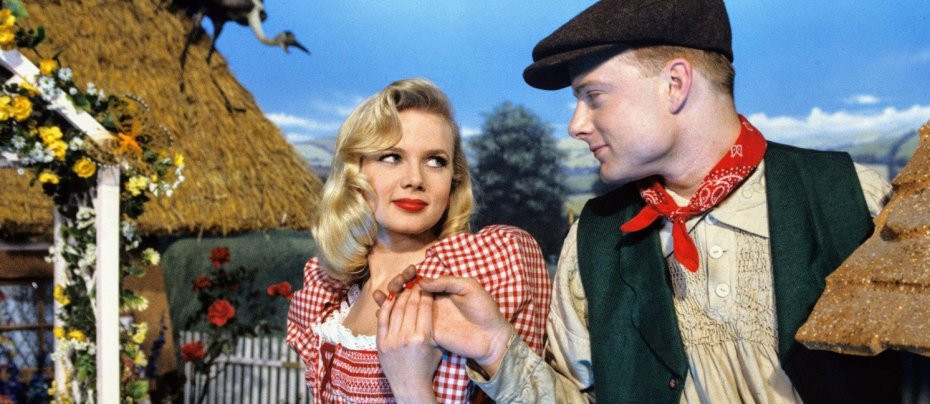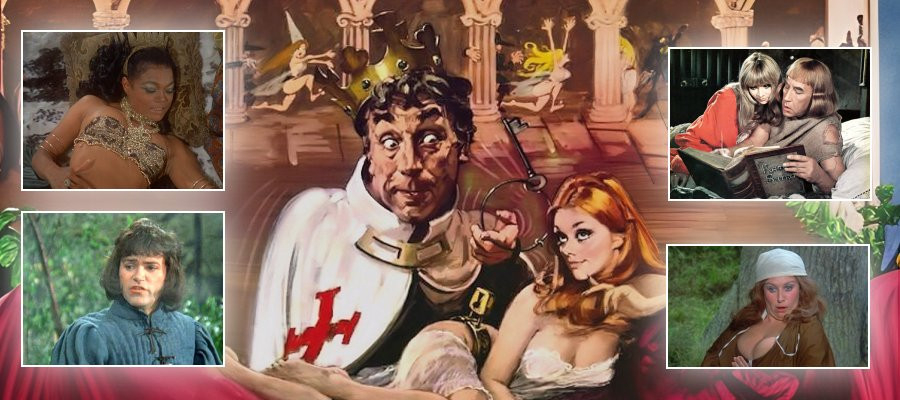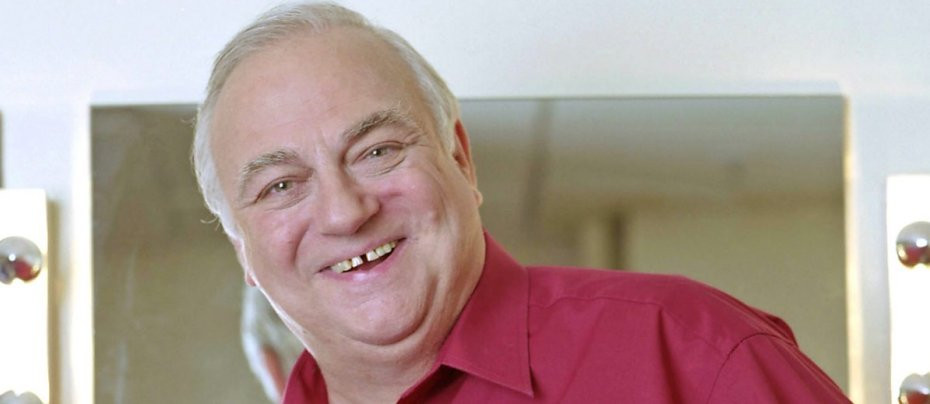
Roy Hudd
“He was funny, kind, encouraging and extremely down to earth - what he wanted most was simply to make people laugh.”
Roy Hudd by Brian Slade
While some actors and comedians suffer the perils of typecasting when they strike small-screen success, others find themselves doing the opposite, being instantly recognisable but never quite known for one particular role. That was the case for the late Roy Hudd, one of comedy’s most recognisable figures who is universally recognised, affectionately remembered by all and yet rarely associated with any specific television persona.
Roy Hudd was born in Croydon and suffered the kind of misfortune that would keep most people away from a life of happiness and comedy. His father left after serving in World War II, while his mother took her own life when Roy was only ten years old. The job of raising the youngster was left to Roy’s gran, who would be instrumental in his leaning towards the theatre.
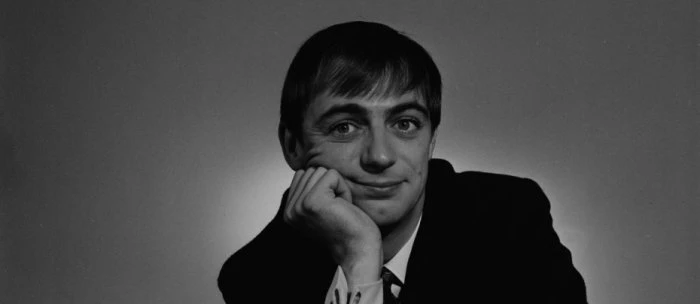
Roy studied as a commercial artist, but his grandmother introduced him to the variety theatres, aided by being a member of a boys club run by a variety performer, and he was hooked from the very first of their weekly theatrical visits. His gran took him to theatres when watching music hall variety shows were a communal way for entertaining. Whatever hardships were being faced in the real world, people from all walks of life could come to gloriously finished theatres and be entertained by comics, magicians, singers – all acts to lift one away for a few hours into a different world. That love of music hall would remain Roy’s passion for his entire life.

After his first professional engagement as one half of a double act in 1957, Hudd and Kay, Roy went on to become a redcoat at Butlins, in those days the perfect breeding ground for aspiring comedians. But in 1959, Hudd found himself on the bill of a show whose headline act was variety legend Max Miller. Roy was born too late to be a successful part of music hall variety in its prime, but working on the same bill as such a legend allowed him just enough time to immerse himself in the classic acts before the variety scene died away in the wake of television’s arrival to the mainstream public.
The next natural step for Roy was radio, the medium he considered to be the best for comedy. It started with no more than a ripple as he guested on Workers’ Playtime in 1960 in the glamorous venue of a brake lining factory in Chapel-en-le-Frith on the same bill as Jimmy Clitheroe. These early days on radio were not headline-grabbing roles, but Roy was learning from the best and as the next few years progressed, his name began to creep up the bill.

In 1964 Roy gained his first regular television success. Touted as a successor to That Was the Week That Was, Ned Sherrin and David Frost had a new satirical show on the BBC, with the equally unusual name of Not So Much A Programme More A Way of Life (with the lengthy tag line of ‘And a way of looking at the world – one eye open wide; one eye closed; so between the two the picture gets composed.’) Alongside Frost there was plenty of talent around to have made the show a success, with the likes of Willie Rushton, Tommy Trinder and John Bird on board, but its success wasn’t enough to sustain it beyond its only series. But television was not done with Hudd.

Roy had guested on two other variety mainstays of the BBC, The Good Old Days and The Billy Cotton Band Show, so in 1965 he was able to put his talents to use in a pilot show Hudd as part of the experimental Comedy Playhouse showcase. It was successful enough to spawn a full series. While not a big enough success to gain a second series, Roy was now becoming a regular face on television as he began popping up on popular panel shows such as Juke Box Jury and Call My Bluff. It seemed television liked Roy but didn’t quite know how to harness his talents, but in 1966 they found a more convincing success in The Illustrated Weekly Hudd, 22 episodes of which were made but sadly lost to the dreaded BBC tape wiping horrors.

Roy’s most notable success arrived in 1975. Having been grounded by the best news satirists in Sherrin and Frost, he teamed up with Chris Emmett and Alison Steadman for The News Huddlines, described in The Radio Times as, ‘an up-to-the-minute comedy show about what’s happening now.’ It proved to be far more than that, providing many writers an opportunity for their material to be aired and the show went from strength to strength as it added June Whitfield to its talented cast in 1984 in Steadman’s place, eventually running until 2001. Hudd actually turned down the opportunity to take The News Huddlines onto television. He felt radio was a much better home that allowed them to edit more freely and for he and Emmett to go off at tangents before Whitfield got them back on track.
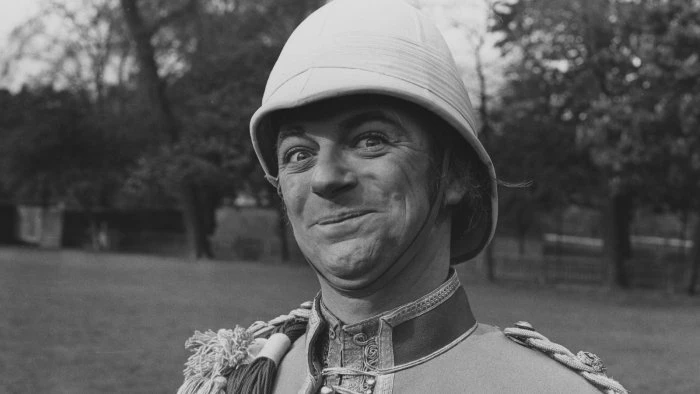
The pattern that emerged over the subsequent years was that while Roy Hudd was a very familiar face on television, he was most at home on stage and on radio. He felt that these two mediums allowed one to develop and hone a line or routine until it worked perfectly, something the more immediate demands of television didn’t permit. But that didn’t mean that his flirtation with television was over – far from it. What it did do is make his television appearances more memorable.
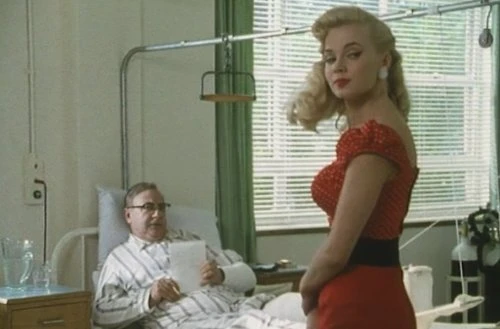
His most notable success saw him play a more dramatic role as the lecherous Harold Atterbow in Dennis Potter’s Lipstick On Your Collar in 1993. It proved that while Roy was all about the laughs, dramatic performances were another talent to be shared. He would appear again in another Potter work, Karaoke, in 1996, but in between he took a turn in Common As Muck, a BBC show about a refuse collection workforce battling against a corrupt council.
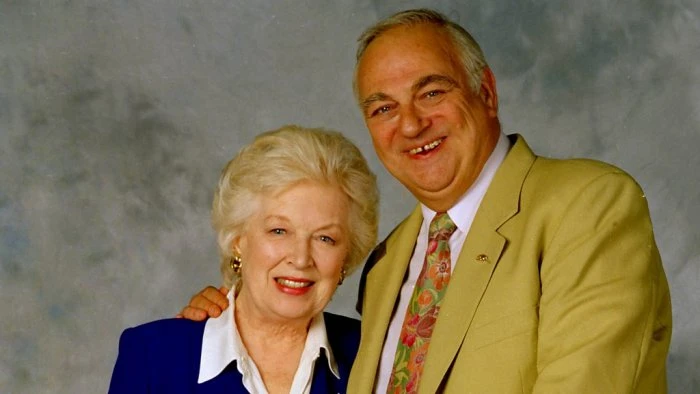
Guest spots and cameos abounded for Roy in later years. He would joke that he and close friend June Whitfield had the two funniest television moments in one year as June wore a condom on her hand in Absolutely Fabulous, complaining that, ‘they don’t put fingers in these gloves anymore.’ Roy’s own contribution was as a huge neighbour being looked after by Victor and Margaret in One Foot in the Grave who asks of them, ‘Toilet?’ Upon receiving directions to the little room he corrects them with, ‘no, I’ve just been.’

Soap operas in modern times have tended to hog the top 10 viewing figure slots, so Roy reached a vast new audience popping up in 2002 as Archie Shuttleworth, an undertaker in Coronation Street. Roy enjoyed it enough to keep re-appearing across nine years, but when bosses asked him to be a permanent fixture, he turned them down. The signing of that contract would have precluded him from doing other work and that was a definite no as stages were where Roy loved to be. Doing Coronation Street full time would have kept him from a live audience, and that would never have suited him.
For all the sadness in his early life, Roy Hudd remained a permanently happy presence in all varieties of entertainment. He was funny, kind, encouraging and extremely down to earth - what he wanted most was simply to make people laugh. On The News Huddlines, he would mostly allow new writers to make their points at will, but it had to be funny and not unkind. Kindness was something Roy exuded, being King Rat for charity Grand Order of the Water Rats along with much other charity work. He was once presenting at an awards ceremony for courtesy and care in the hospitality industry. Roy discreetly removed a rogue hair on a guest’s lapel, the guest then commenting excitedly, ‘I can’t believe the Roy Hudd has just done that.’ Roy overheard and said, ‘there’s a few lads and lasses who have done a great deal more to achieve what I’ve just put on their lapels.’
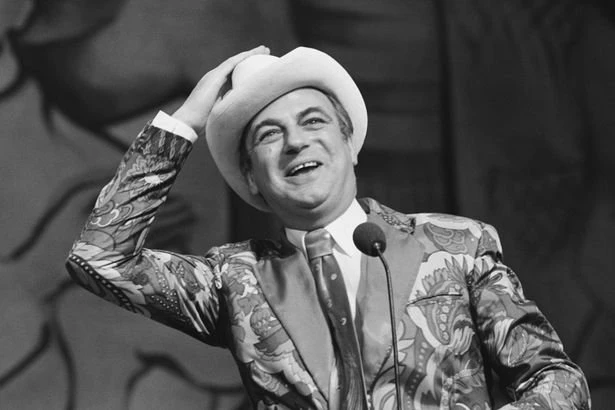
It’s safe to say that television didn’t benefit fully from the talents of Roy Hudd – that was saved for the stage and radio, anywhere he could work a routine into getting laughter. His performances on screen were always funny, sincere or moving – always showcasing what a quality performer he was. But his true love was music hall variety. His knowledge was of an encyclopaedic nature, evidenced by the array of books he wrote on the subject, and this permanently smiling and good-natured man wanted to transfer that joy to every audience he worked with, be it packed theatres or friendly gatherings. When once asked about how he wished to be remembered, he said, ‘I just want people to say “He did make me laugh.”’ Well he most certainly did that and to steal one of his many lines, he knew he had because he had the letters to prove it…mostly from the wife.
Published on April 3rd, 2022. Written by Brian Slade for Television Heaven.



